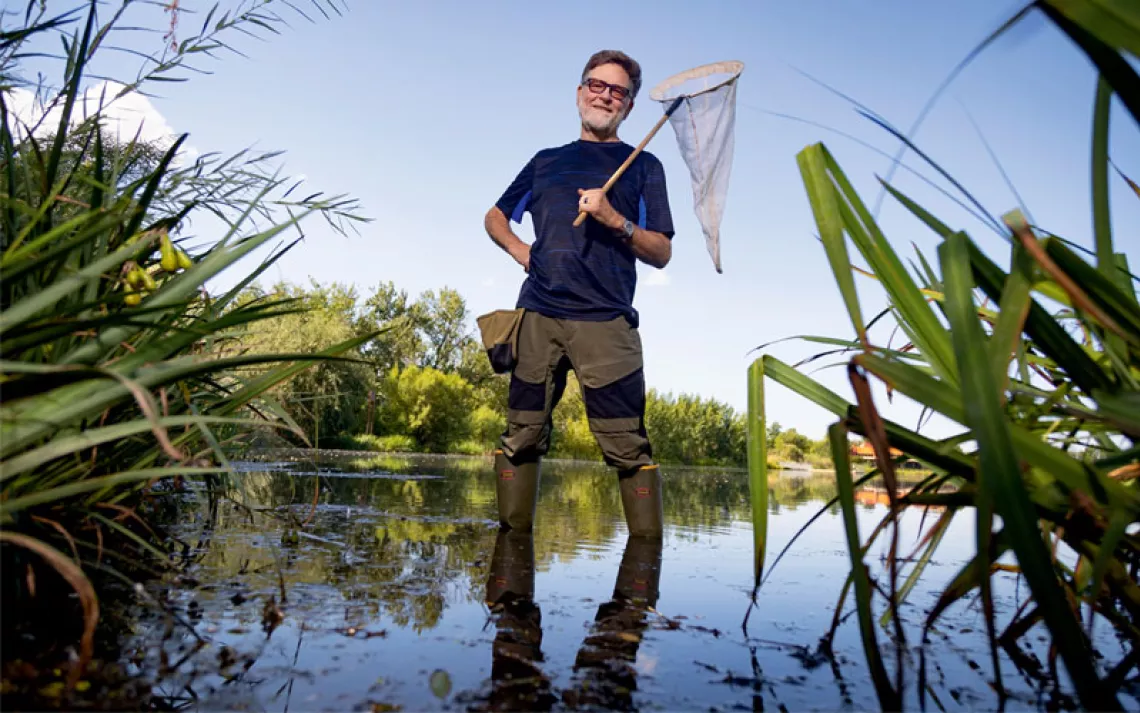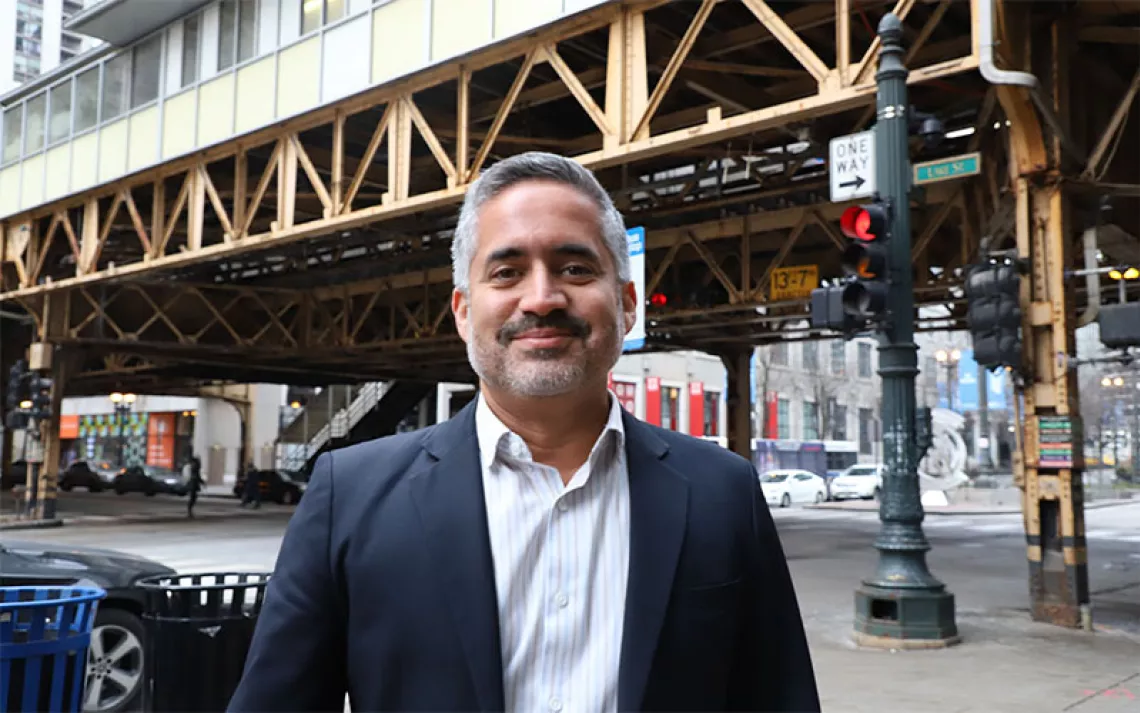Baltimore Student Leader Receives Goldman Environmental Prize
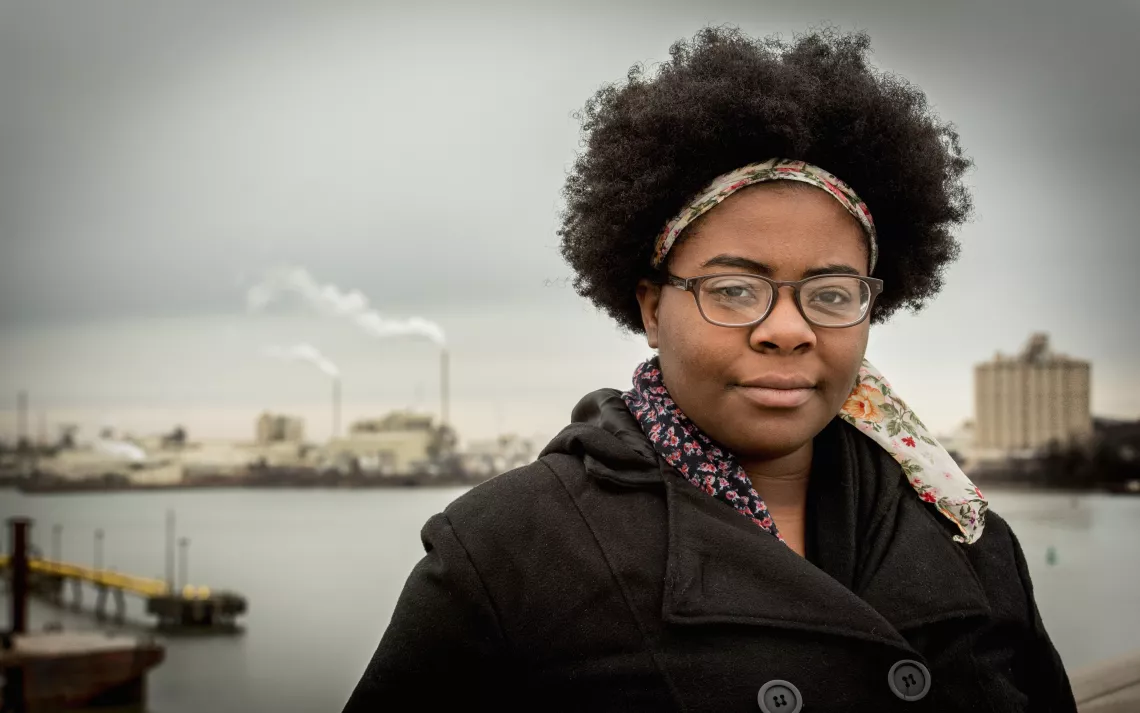
Destiny Watford
|Photos Courtesy of Goldman Environmental Prize
Destiny Watford knows the value of a compelling narrative. Whether it’s Princess Daenerys’s daring rise to power in Game of Thrones (her favorite book series) or her own battle for environmental justice in her hometown of Baltimore, Maryland, the aspiring fantasy writer and English major is keenly aware that a good story has the power to change minds.
On Monday, Watford will receive the prestigious Goldman Environmental Prize for her successful grassroots effort to stall the construction of what would have been the nation’s largest trash incinerator in the Curtis Bay neighborhood of southern Baltimore.
In 2012, the then-17-year-old Watson first learned that the developer Energy Answers had secured legal approval to build a solid-waste-to-energy power plant—PR speak for a trash incinerator—one mile from her high school. “When the incinerator was proposed, it was proposed as the solution to both the energy crisis and the waste crisis,” Watford told Sierra in a recent interview. “It sounded like a wonderful solution, but it's not—it was a false alternative.”
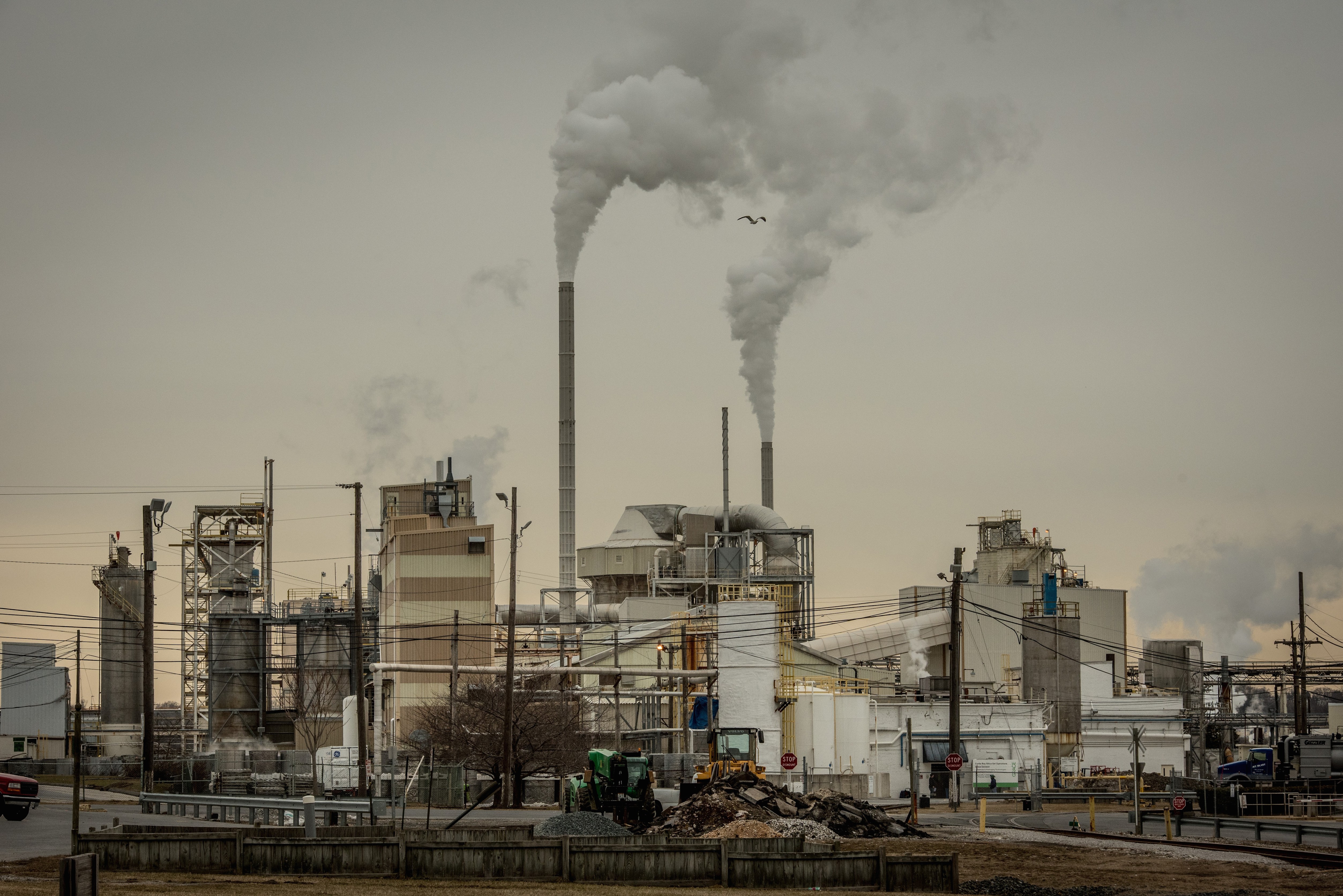
Curtis Bay is ranked among the top 20 U.S. zip codes with the worst release of toxic emissions. According to a 2013 study by the Massachusetts Institute of Technology’s Laboratory for Aviation and the Environment, 130 of every 100,000 Baltimore residents “likely die in a given year due to long-term exposure to air pollution.” Although the proposed incinerator was ranked in "tier 1" of Maryland’s Renewable Portfolio Standard, research found that it would emit 240 pounds of mercury and 1,000 pounds of lead per year, posing a serious health risk to a community already suffering from toxic air pollution.
But many members of the Curtis Bay community seemed to think that the construction of new polluting facilities was inevitable. One resident told Watford that efforts to derail the incinerator project were pointless because Curtis Bay had always been, and would continue to be, a dumping ground for the rest of the state’s trash.
That’s when Watford realized that people around her had resigned themselves to Energy Smart’s narrative that trash incineration is a clean energy alternative. Her neighbors had developed what she calls a “dumping ground mentality.”
"The thing about living next to the polluting industry that has existed in Curtis Bay for so long is that after a while you kind of begin to ignore it," she explains. So, as a high school senior, Watford set out to change her community’s story.
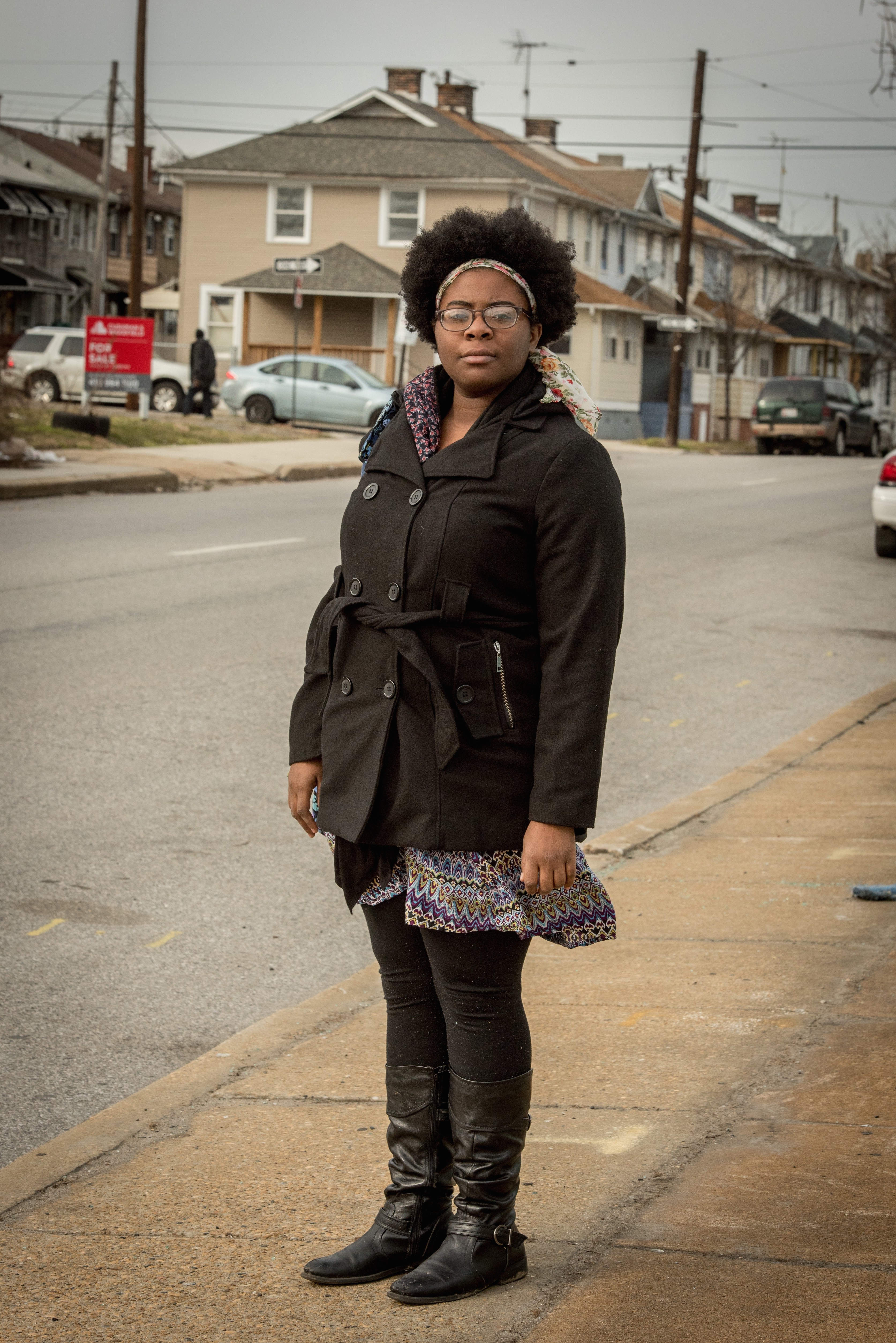
Alongside classmates in her high school’s student-led human rights group, Free Your Voice, Watford embarked on a campaign to convince 22 public entities in Baltimore to back out of agreements to buy energy from the Energy Smart incinerator.
"Essentially, our entire campaign can be boiled down to shaping narrative and storytelling,” says Watford. “I'm a writer, other members of the group were poets and musicians, and we used our skills and our creativity to show and to tell our stories.” The students collected hundreds of video testimonies from people in Baltimore and beyond, including one from writer and activist Naomi Klein, and used social media to garner wider support for the campaign. “The first video we made was shared on social media by one of my favorite authors, Margaret Atwood!” recalls Watford.
One of the entities that had contracted with Energy Smart was Baltimore City Public Schools (BCPS). So Watford and her Free Your Voice classmates attended a school board meeting in an effort to sway the board. “We were readily armed with our poems and our songs and our speeches, and two amazing members of the group sang a song that they had written about the shift from passive acceptance of the pollution to waking up and taking that stand,” says Watson. The school board responded with a standing ovation, and in February 2015, the BCPS board backed out of its contract with Energy Answers.
"After the school board, there was sort of this domino effect of us doing similar performances and all these entities backing out of their contracts,” says Watford. By the fall of 2015, Free Your Voice had convinced all 22 public agencies to terminate their contracts to buy energy from the incinerator developer.
Having successfully blocked the incinerator project’s main source of funding, Watford and her peers redirected their efforts toward getting the Maryland Department of the Environment (MDE) to determine that the project’s permits were expired, which would prevent the start of construction. “MDE had the opportunity to pull the plug on the project, but they weren't,” explains Watford. “In fact, they were being silent."
Then, in April 2015, 25-year-old Freddie Gray was killed while in police custody in Baltimore. "In that moment, injustice in Baltimore was being highlighted, and the world was watching how we handled the injustice that we faced,” remembers Watford. “And so, for a government-funded agency whose sole purpose is to protect our health and to protect our lives against things like the incinerator to answer our outcries with silence was absolutely unacceptable."
In December, Free Your Voice and 200 community members from across the city visited MDE to ask the agency to pull Energy Smart’s permit. “We weren't there to do any harm—just to be a part of the decision-making process,” says Watford. The MDE only allowed nine people into the office for a face-to-face meeting with Benjamin H. Grumbles, Maryland’s secretary of the environment. At the time, Grumbles refused to declare the permits invalid, and seven people, including one of Watford’s best friends, were arrested for civil disobedience after engaging in a sit-in at MDE.
Finally, in March 2016—four years after Watford first learned about the proposal for the incinerator—the MDE officially declared that Energy Smart’s permit had expired. Watford is now pushing for clean energy alternatives like a solar farm or composting and recycling centers in Curtis Bay.
Although Watford has stalled Energy Answers’ construction efforts in Baltimore for the time being, the development company is pursuing plans to build a trash incinerator in another community already plagued by pollution—Arecibo, Puerto Rico. The Sierra Club Puerto Rico Chapter and another Goldman Environmental Prize winner, Luis Jorge Rivera Herrera, are involved in the fight to block the company’s second incinerator project.
“People assume that communities like Curtis Bay that have been oppressed and have been dumped on for so long won't take action when something like the incinerator is proposed,” says Watford. “So it's really important that we change hearts and minds . . . and I think art [and storytelling] is a really powerful tool to do that."
What will the 20-year-old do now that she’s been awarded the environmental movement’s most prestigious award? She’s going to keep telling stories. “I've been tossing around the idea of doing a fantasy version of our campaign,” confesses Watford. “That would be really fun.”
 The Magazine of The Sierra Club
The Magazine of The Sierra Club


